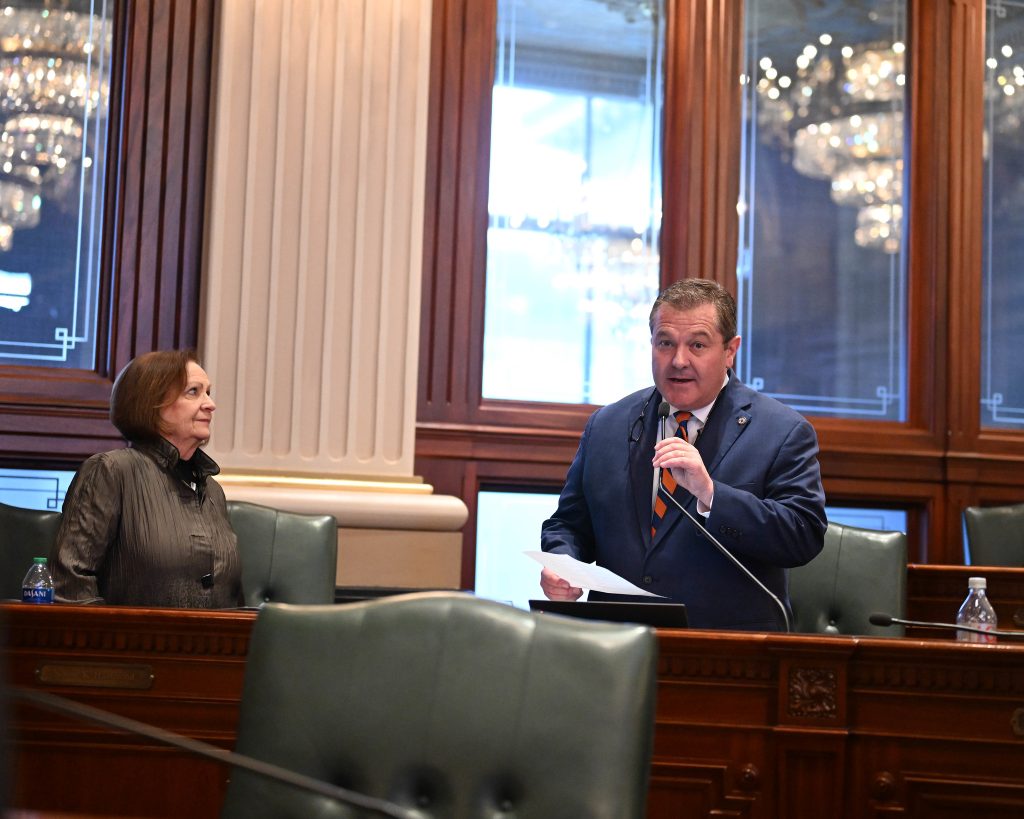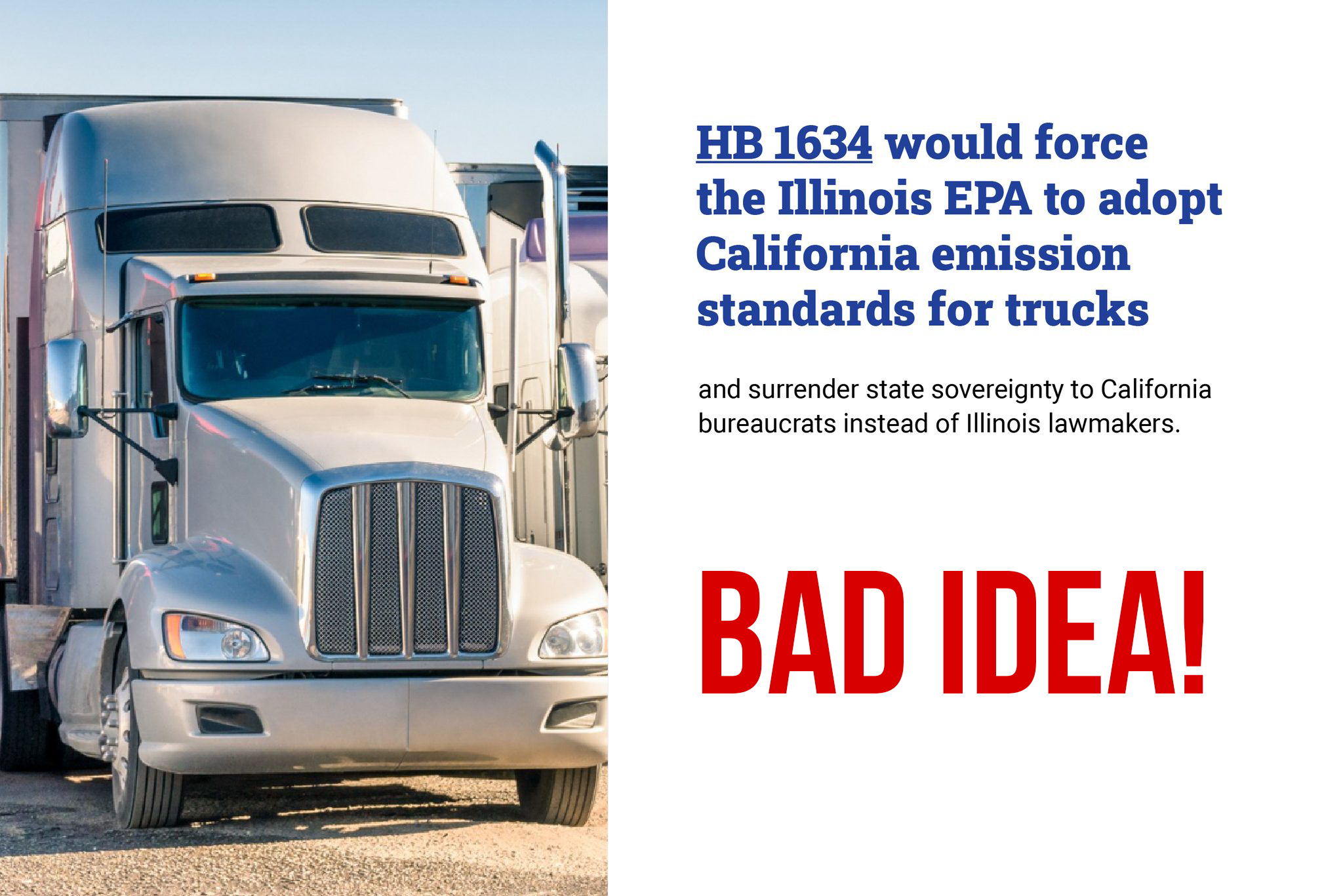Illinois House Republicans and thousands of concerned Illinois residents are working as part of statewide and local grassroots efforts to keep strict California Emission Standards from being enacted by the majority party in Illinois. These emission standards would eliminate the production and use of gasoline-powered vehicles and force drivers to buy electric vehicles in Illinois in the near future.
House Bill 1634, introduced by Democrat Edgar Gonzalez, would require Illinois to adopt California’s ultra-strict motor vehicle emission standards. Under California law, automakers are required to increase the proportion of zero-emission vehicle sales every year. That legislation would put zero-emission vehicle sales at 35 percent for model year 2026, 68 percent by 2030, and reach 100 percent by 2035. This would apply to ALL new passenger cars, trucks, and SUVs sold in Illinois.

“If this bill is passed, it would be devastating to Illinois trucking companies and would create a mass exit from our state. Companies that have choices are great for a free market, but this bill would create the exact opposite.”
-Representative Mike Coffey
The bill would require Illinois to implement California’s clean trucks program and heavy-duty low NOx omnibus program that targets 100 percent of new light-duty vehicle sales to be zero-emission vehicles by 2035, all drayage semi-trucks to be zero-emission vehicles by 2035, and all buses and long-haul semi-trucks to be zero-emission vehicles by 2045.
The bill was expected to be discussed during an Energy and Environment Committee meeting scheduled for February 20 in Springfield. However, faced with fierce opposition and thousands of witness slips being filed opposing the legislation, Democrats canceled the meeting. As of now, over 3,900 witness slips had been filed in opposition at ilga.gov, with only 542 filing in support.

The Executive Director of the Illinois Trucking Association, Matt Hart, is quoted as saying the response to the proposed legislation “is the largest number of people I have ever seen who filed a witness slip in opposition to a trucking-related bill.” Hart is also quoted as saying that the law is “not only a detriment to the trucking industry, but it would be a killer for businesses in Illinois. Trucking, transportation, and warehousing is the number one business for minority business ownership in Illinois. Most of these are small businesses that cannot afford a $480,000 electric truck. They’ll simply move. They’ll start a company in Indiana or Wisconsin where they can afford to buy a clean diesel truck.” ITA also said that the cost to operate an electric truck is nearly double the cost to operate a traditional truck.
The list of groups that oppose the bill is very long. It includes the Illinois Trucking Association, Illinois Chamber of Commerce, Illinois Manufacturers Association, Illinois Automobile Dealers Association, Illinois Farm Bureau, and a host of others.
A zero-emission vehicle is defined as a vehicle that produces zero tail-pipe emissions, including battery-electric vehicles and hydrogen fuel cell vehicles. Near-zero-emissions vehicles are defined as vehicles with an internal combustion engine and an electric energy storage system, including plug-in hybrid vehicles and hydrogen internal combustion engine vehicles.
Current Illinois emissions laws were last updated in 2005. Drivers living in a county or ZIP code with air pollution issues must complete regular emissions testing if the car is more than four years old and built after 1996. Motorists who live in Cook, DuPage, Kane, Kendall, Lake, Madison, McHenry, Monroe, St. Clair, and Will are subject to emissions testing, with all locations in the Chicagoland and Metro East areas.
Catching Up with Coffey
BUDGET | TAXES | IMMIGRATION | INFLATION repcoffey.com/2024/03/01/catching-up-with-coffey-25/
